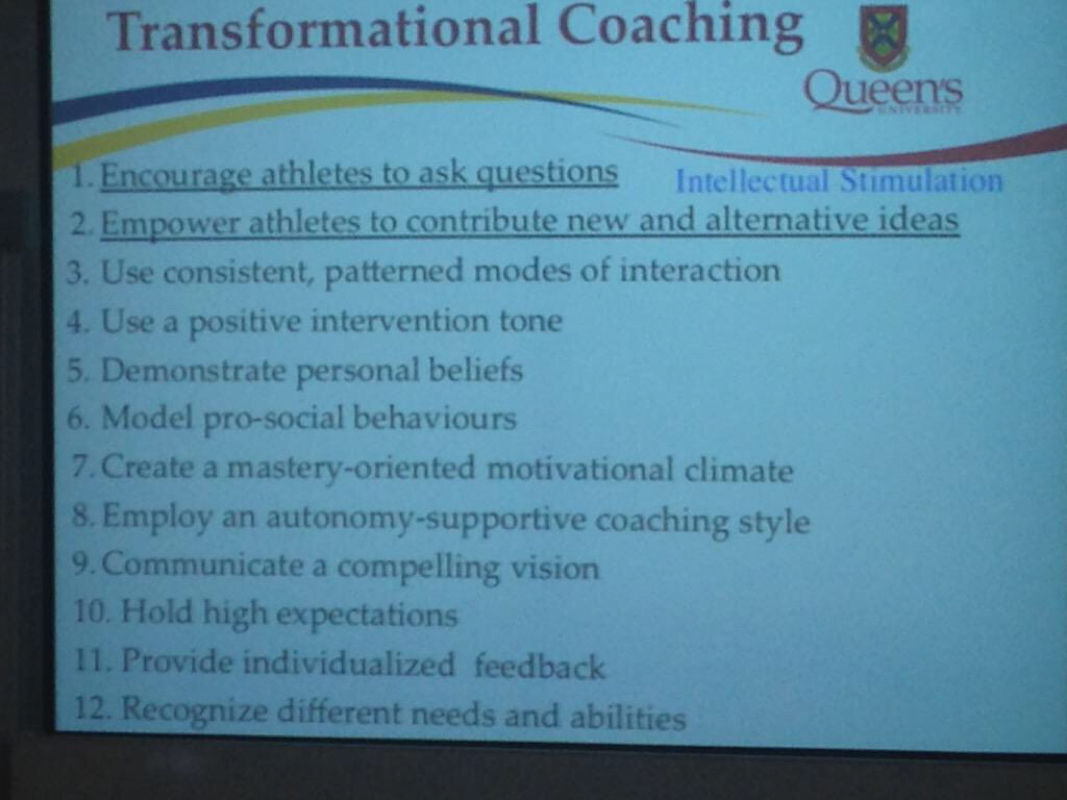|
I have been doing a little bit of reading around notions of transformational leadership and coaching over the past few weeks. The concepts behind transformational leadership are characterized by four primary facets, including: idealized influence (i.e., being an exemplary role model); intellectual stimulation (i.e., challenging existing norms and inciting ideas for change); inspirational motivation (i.e., developing and communicating a vision); individual consideration (i.e., attending to the individual needs of followers) (Bass and Riggio, 2006) A study by Vallée and Bloom in 2005 found that the four aspects of transformational leadership were characteristics of the college coaches they interviewed. Just as I was reading about transformational leadership and coaching I also came across this slide from Jean Cote at what I think was a conference for UK level 4 coaches. In respect of the notion of the 'intellectual stimulation' aspect of transformational leadership, Cote noted a list of hallmarks of transformational coaching. I am not saying that coaches need to be doing all of these all of the time but that it would be beneficial to their learners that they do most of these most of the time. Moreover, if one wants to move beyond a direct/transmission mode of coaching to one that is truly transformational coaches certainly need to pay attention to employing a questioning and autonomy supportive coaching style that empowers learners. The importance of this is so that coaches move beyond 'telling' learners what to do or having learners simply recall information when questioned to a situation where they contribute ideas to reflect on performance and find solutions to problems.
Vygotsky's notion of internalization which was critiqued and re-defined by researchers such as Bakhtin due to connotations within the term internalization related to 'transmission, transferal of knowledge, that is also reactional in nature. These authors preferred the term 'appropriation' which assumed learning to be reciprocal and social resulting in the active construction in knowledge. This term is very appropriate in supporting notions of transformation as opposed to transmission because of the links between appropriation and transformational coaching styles that encourage debate, discussion and reflection and empower learners. Reference Vallée, C.N., & Bloom, G.A. (2005). Building a successful university sport program: Key and common elements of expert coaches.Journal of Applied Sport Psychology, 17(3), 179-196.
1 Comment
|

 RSS Feed
RSS Feed
